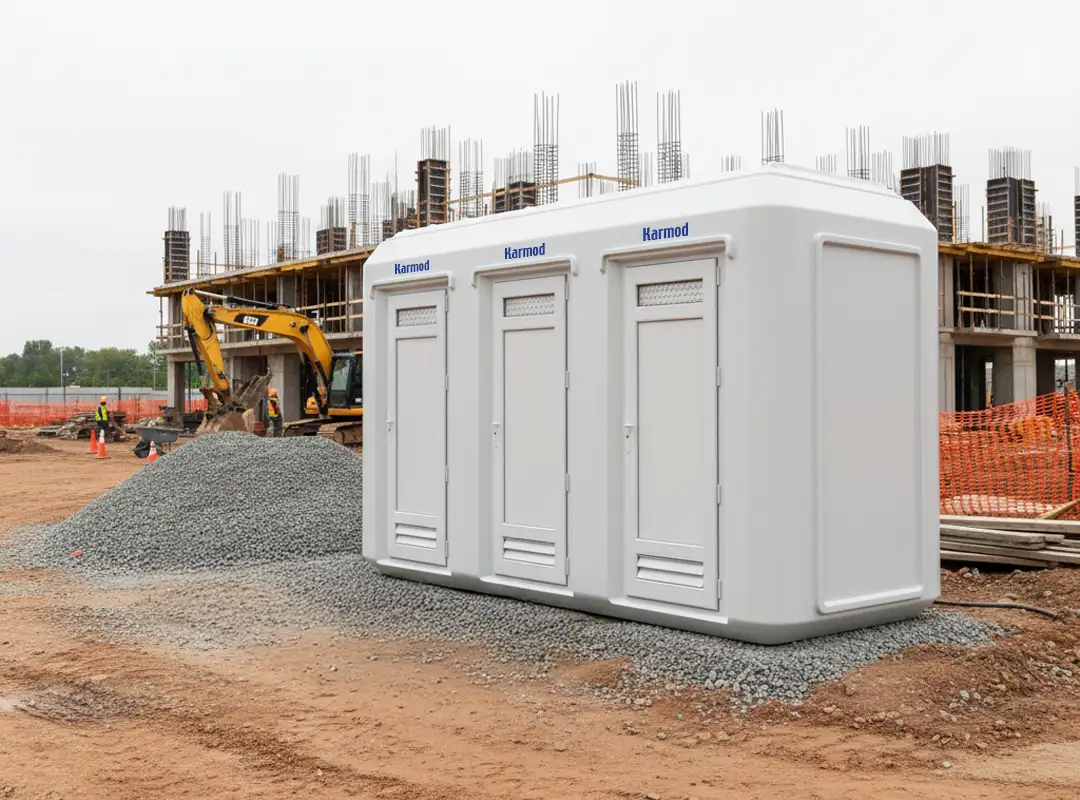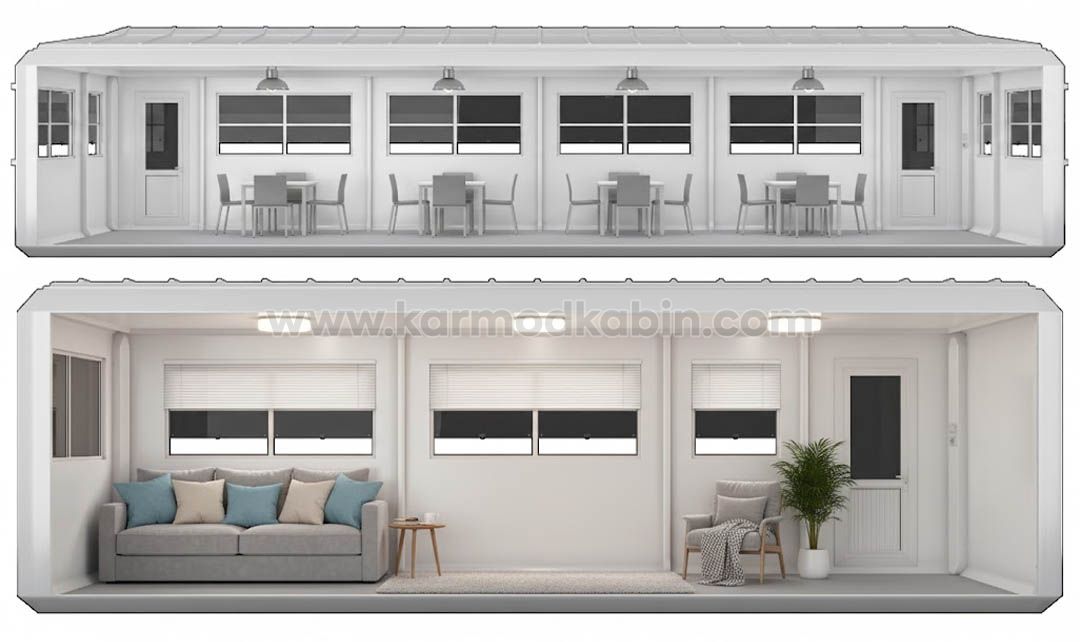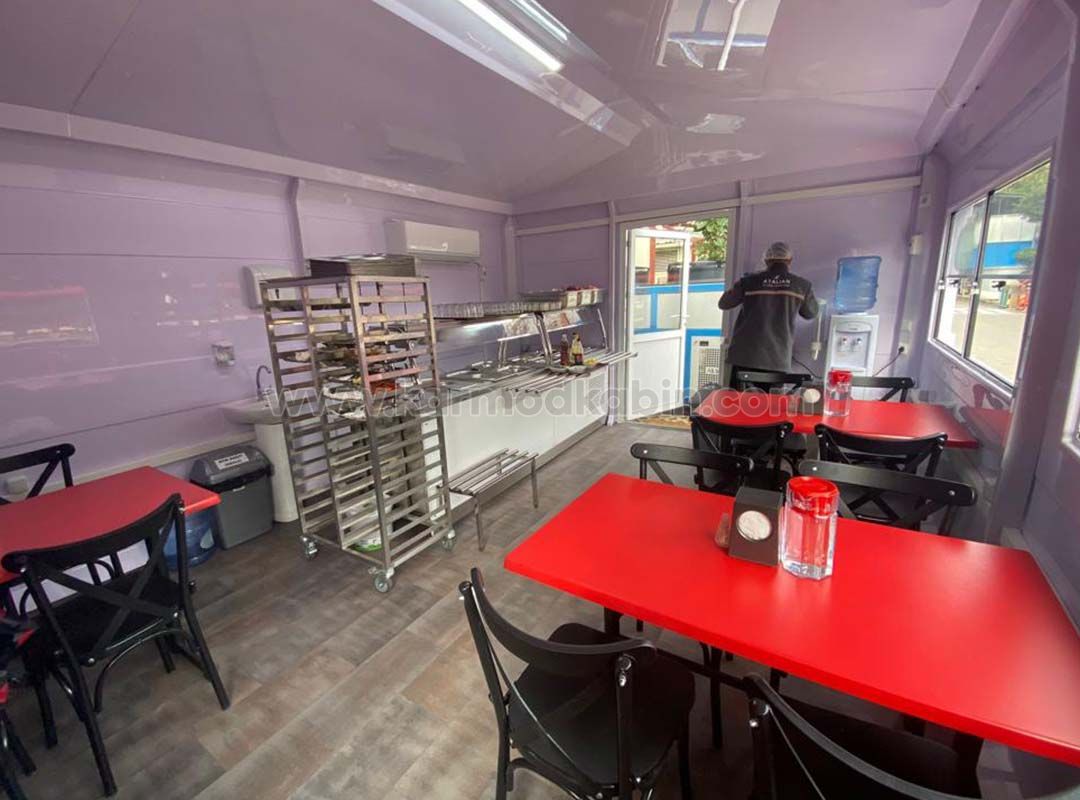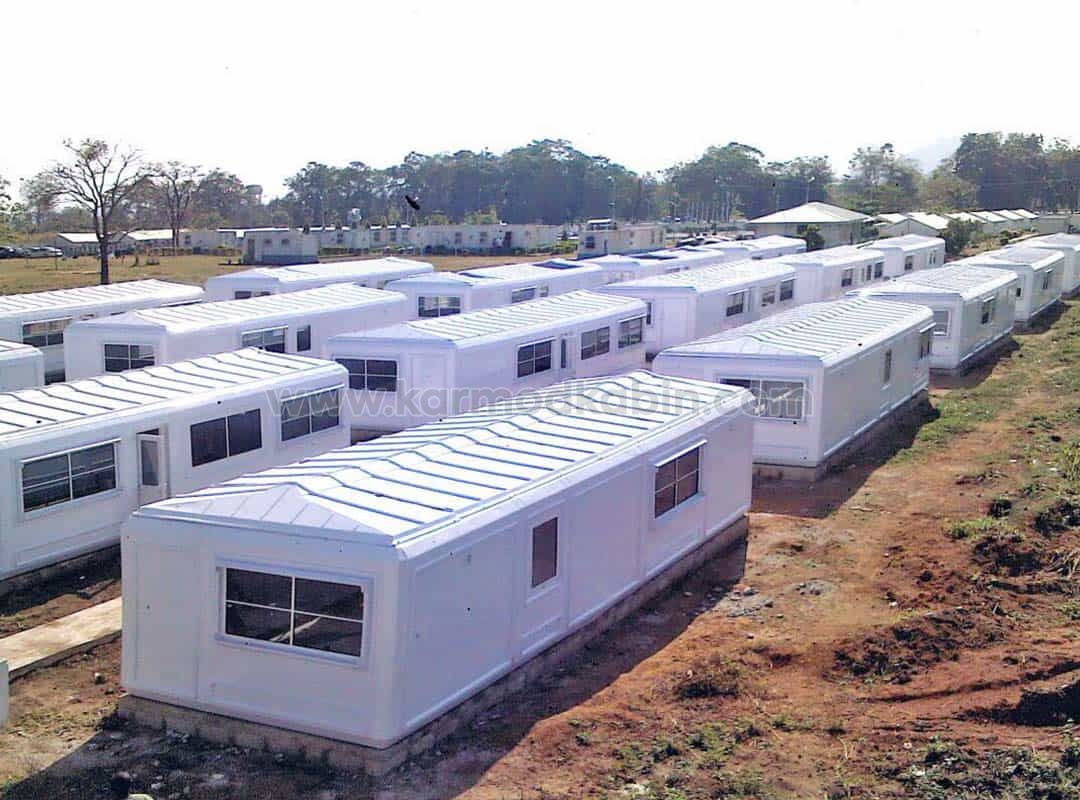
Modern construction sites are no longer defined solely by the speed of completion or the size of the project. Today, they are measured by how well they care for the people who build them. Social facility cabins — designed to provide comfort, hygiene, and rest — have become an essential part of every professional construction area. Beyond meeting legal obligations, these modular cabins represent a company’s commitment to worker welfare and operational efficiency.
In recent years, governments and occupational safety authorities around the world have made social facility cabins mandatory for all construction projects. These units, which include rest areas, dining spaces, hygiene cabins, and accommodation modules, ensure that every worker has access to basic living conditions directly on-site. Their growing importance stems from the belief that healthier, more comfortable workers contribute to safer and more productive construction environments.
Social facility cabins are far more than temporary structures — they are the heartbeat of a modern construction site. These modular units serve as safe, comfortable spaces where workers can rest, eat, change clothes, and maintain hygiene during demanding work hours. By integrating social cabins into construction areas, project managers create an organized environment that promotes both efficiency and well-being.
In many cases, construction projects operate in remote or developing areas without permanent infrastructure. Here, prefabricated social cabins become indispensable. They not only provide essential amenities but also demonstrate a company’s responsibility toward worker safety and health. From day one, a well-planned social facility layout can improve team morale, reduce fatigue-related accidents, and even accelerate project timelines through better workforce satisfaction.
Governments and occupational safety institutions have recognized that construction work exposes employees to extreme conditions — long hours, changing weather, and physical exhaustion. To protect workers’ health and dignity, mandatory regulations now require social facilities to be installed on every active site. These laws aim to provide minimum standards for hygiene, rest, and nutrition, ensuring that no worker operates without access to basic living comforts.
In many countries, including those in the EU, the UK, and the Middle East, the absence of approved social facility cabins can lead to penalties, work stoppages, or revoked permits. Legislations often specify the number and type of cabins required, depending on the workforce size. These include toilets, showers, rest lounges, and dining units — all equipped to handle daily usage under harsh site conditions.
By complying with these standards, companies not only meet legal obligations but also reinforce their reputation as responsible and ethical employers.
Every mandatory social facility cabin is designed around two core principles: worker comfort and regulatory compliance. These cabins are not just spaces to rest—they are structured environments that support health, safety, and productivity on construction sites. To meet modern standards, each unit must include essential components that align with occupational safety guidelines and ergonomic design principles.
The main features of compliant social facility cabins typically include:
Each of these modules is built with high-quality, durable materials — often galvanized steel and heat-insulated panels — ensuring long service life even in demanding environments. By combining functionality with comfort, prefabricated cabins transform regulatory requirements into practical, worker-centered solutions.
Rest areas inside social facility cabins are carefully designed to provide workers with a space where they can recover physically and mentally after hours of labor-intensive tasks. These areas are typically insulated, air-conditioned, and furnished with ergonomic seating to ensure comfort during breaks. A well-planned rest cabin can significantly reduce fatigue, improve concentration, and enhance morale — all of which contribute directly to better site productivity and fewer workplace incidents.

The layout of rest areas often includes quiet zones where workers can disconnect from noise and dust, as well as communal spaces that encourage social interaction and team bonding. Modern prefabricated rest cabins also integrate smart ventilation systems and LED lighting to maintain air quality and energy efficiency. When construction companies invest in such well-being spaces, they not only comply with mandatory standards but also show genuine care for their workforce — a value that reflects positively on brand reputation and employee retention.
Hygiene is one of the most critical aspects of worker welfare on any construction site. Portable toilets, showers, and changing cabins form the foundation of every mandatory social facility plan. These units ensure that workers can maintain cleanliness, which directly affects health, comfort, and morale. A hygienic environment also minimizes the spread of diseases, protects against contamination, and helps companies comply with occupational health regulations.
Modern prefabricated hygiene cabins are engineered for durability, easy maintenance, and water efficiency. They typically include:
These cabins are designed using antibacterial surfaces and corrosion-resistant materials, making them suitable for long-term use even in harsh construction environments. By prioritizing hygiene, companies not only protect workers but also create a culture of respect and care — fundamental qualities for successful project execution.
In large-scale or remote construction projects, where work continues around the clock, on-site accommodation cabins become essential. These modular living units provide workers with a secure and comfortable place to rest after long shifts, reducing commute times and ensuring that teams remain on standby when needed. For projects located in isolated or rural areas, accommodation cabins are not just convenient — they are vital for maintaining workforce continuity and efficiency.
Each prefabricated accommodation unit is designed with comfort and practicality in mind. Common features include:
These units are built using modular steel structures that can be quickly installed, expanded, or relocated. Many companies also include recreational lounges or TV rooms within their accommodation zones to support mental relaxation. By investing in proper living facilities, project managers not only meet mandatory standards but also show respect for the human side of construction — an approach that reduces turnover and increases motivation.
Nutrition and rest go hand in hand when it comes to maintaining workforce performance. Dining and break cabins provide workers with a clean, comfortable, and weather-protected space to eat and recharge during the day. On busy construction sites, where schedules are tight and physical effort is constant, having a dedicated dining area directly impacts energy levels and overall productivity.
Well-equipped dining cabins typically include:

These cabins can be customized according to the number of workers and local hygiene regulations. Many modern modular designs also integrate waste separation units to promote environmental responsibility. When workers have access to a comfortable dining area, they return to their tasks more focused and motivated — a small investment that brings significant returns in performance and team morale.
Every construction site must comply with strict safety and health regulations established by labor and occupational authorities. These standards ensure that social facility cabins meet the minimum requirements for hygiene, space, ventilation, and accessibility. Failure to comply can result in heavy penalties, legal action, or even the suspension of site operations — which is why proper planning and certified materials are essential from day one.
Authorities often require that social facility cabins provide:
In addition to these physical requirements, routine inspections and maintenance schedules are often mandated to verify compliance. Certified prefabricated cabins make it easier for construction firms to meet these legal demands, as they are pre-engineered to align with international standards such as ISO, CE, and OSHA. Companies that follow these regulations not only avoid legal risks but also foster a culture of responsibility and trust — both among workers and clients.

Modern construction sites are increasingly focused on sustainability — and energy-efficient social facility cabins are at the center of this transformation. These cabins are engineered with advanced insulation systems, smart ventilation, and low-energy consumption technologies that create a comfortable indoor environment while reducing operational costs. Whether the project is in a hot desert or a cold northern region, energy-efficient designs ensure consistent comfort for workers all year long.
Common sustainability features include:
By adopting these features, companies not only comply with energy efficiency directives but also project a modern, eco-conscious brand image. These improvements also reduce noise, minimize CO₂ emissions, and improve air circulation — creating a healthier, more sustainable work environment. Ultimately, energy-efficient cabins combine functionality and environmental responsibility, proving that comfort and conservation can coexist seamlessly on construction sites.
Time is one of the most valuable resources in the construction industry. Prefabricated social facility cabins are designed to minimize installation time and maximize flexibility — two factors that make them indispensable for dynamic project environments. Unlike traditional structures, these cabins arrive on-site pre-engineered and partially assembled, allowing installation to be completed in just a few hours or days, depending on the project size.
One of the biggest advantages is mobility. Once a project phase is completed, cabins can be easily dismantled, transported, and reinstalled at a new location. This flexibility saves significant costs on building new facilities for every site. Additional benefits include:
For companies managing multiple projects simultaneously, fast installation and relocation capabilities offer unmatched efficiency. These advantages not only keep projects on schedule but also ensure that workers always have access to the essential facilities they need, wherever the work takes them.
Durability is a non-negotiable requirement for any construction-site facility, and steel-based modular systems have proven to be the most reliable solution. Built to withstand heavy use, rough weather, and constant relocation, these cabins offer unmatched longevity compared to wooden or lightweight alternatives. The use of galvanized steel frames and high-density sandwich panels ensures structural integrity even under extreme environmental conditions such as heavy rain, snow, or high temperatures.
In addition to their strength, modular steel cabins require minimal maintenance. Surfaces are coated with corrosion-resistant materials, and the modular components can be easily replaced or upgraded without dismantling the entire unit. Key durability advantages include:
Because of these benefits, steel modular cabins have become the global standard for compliant and long-lasting social facilities on construction sites. They deliver not only physical strength but also financial stability, reducing long-term operational costs for contractors and developers alike.
Every construction project has its own rhythm, budget, and workforce scale — and modular social facility cabins are designed to adapt perfectly to these differences. Whether a site hosts 20 workers or 2,000, cabins can be customized in size, layout, and functionality to meet specific operational needs. This flexibility allows companies to build a complete on-site social infrastructure without overspending or compromising comfort.
Customization options typically include:
These design variations enable developers to create a workspace that feels both professional and welcoming. Moreover, many suppliers offer turnkey solutions, meaning that electrical, plumbing, and furniture installations are completed before delivery. This plug-and-play structure minimizes setup time and ensures that every project — large or small — benefits from the same level of quality and efficiency.
One of the strongest advantages of using prefabricated social facility cabins lies in their ability to cut operational expenses while maintaining high standards of comfort and compliance. Traditional construction methods often involve high labor costs, long build times, and expensive materials. In contrast, prefabricated systems are manufactured in controlled factory environments, reducing waste, transportation costs, and on-site labor requirements.
These savings appear in several areas:
By integrating these cost-effective solutions, companies can allocate more resources to core project operations while still providing high-quality living and working conditions for their employees. The financial efficiency of prefabricated cabins proves that sustainable comfort and smart economics can coexist — making them a strategic investment rather than just a compliance necessity.
Selecting the right social facility cabin supplier is crucial to ensuring long-term safety, comfort, and compliance on your construction site. A reliable partner should not only deliver high-quality products but also provide expert guidance on layout planning, customization, and after-sales support. The ideal supplier understands that every project is unique — and therefore offers flexible solutions tailored to your workforce size, local regulations, and environmental conditions.
When evaluating potential suppliers, consider the following criteria:
By partnering with a reputable manufacturer, construction firms gain peace of mind knowing their social facility cabins are safe, durable, and compliant from the very start. A professional supplier doesn’t just deliver products — they deliver solutions that keep your operations smooth, your workforce happy, and your brand image strong.
Take the next step toward a safer, more efficient, and legally compliant construction site. Our team specializes in delivering modular solutions that combine comfort, strength, and speed.
Why choose our certified social facility cabins:
Take action today:
Your workforce deserves the best — and your project deserves efficiency that lasts.